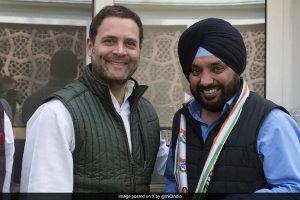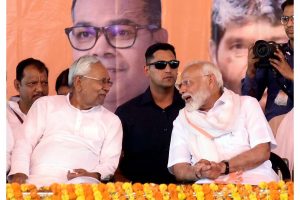My out-of-town friends are very curious about why a majority of New York City residents will sometimes vote for a Republican mayor or governor but almost never a Republican president. The answer is: it’s complicated. Despite the ideological gloss of each party’s rhetoric, there is still a reliable portion of the electorate that’s moved by traditional machine politics, and New York has been the Democrats’ historical stronghold. It’s also a city of immigrants, and Democrats have made immigrant friendliness part of their brand since at least the 1960s. Yet, New York is also the city of Wall Street and Madison Avenue, of billionaire movers and shakers of the nation’s markets—the world’s markets. These types tend to be (at least by the simplest of narratives) Republicans, and they tend to vote more regularly in state and local elections than the hoi polloi, many of whom only come out for the “big” national races.
But there is also much more to commerce-focused political preferences than party loyalty or even specific policy expectations. More than anything, markets crave stability. For all the talk of creative “disruption” that is the buzz of today’s business world, Wall Street loves nothing quite as much as predictability. So, when we say Wall Street has a lot of “Republicans,” we are talking about a particular type of Republican. One who will promote sensible economic policies and secure the American empire through diplomatic savvy as well as military strength—signalling support to allies and caution to enemies. That Republican is anyone but Donald Trump, the current darling of that party, which has been taken over by a populist base that was considered fringy prior to the upset election of 2016.
With Trump’s lead being enormous enough to make him essentially untouchable, the Republican primary has been largely a race for second place, or the race to become the final challenger to Trump at the party convention, to plead the case to Republicans across the nation to consider whether, in a general election, Trump is the right candidate to take on the Democratic incumbent, President Joe Biden. It’s a fair question. If Trump is the nominee, every Democrat will turn up to vote against him, even if they dislike Biden. And the “never-Trump” Republicans who voted for Hillary Clinton and Joe Biden in 2016 and 2020, respectively, will vote Democrat again.
If, however, there is a viable alternative to Biden, a Republican who seems “normal” and dependable, then that’s someone they will get behind.
Enter Nikki Haley of South Carolina. Many of the traditional, “respectable” Republican support systems, like the Koch network, have endorsed her, as have a number of Wall Street billionaires. Most of the “never-Trump” Republicans are poised to come home to their own party in the general election if Haley is the nominee. They are backing her strongly in the primary. She is the great white hope for the triumphant return of the Grand Old Party (as the Republican Party is nicknamed) to its former glory as America’s classy and patrician political faction.
But wait just a minute. Did anyone notice that the great white hope is not, er, white? Yeah, nobody cares. Well, almost nobody. Some of the Trump enthusiasts care. Trump himself has been slyly dog-whistling to his base that Haley (his former ally and his appointee to the United Nations) is maybe not a “real American.” He refers to her by her first name, Nimarata, vaguely suggesting that “Nikki” is a fake American name, although fact-checkers have noted that “Nikki” has been her legal middle name since birth and is, in fact, a common Punjabi nickname. Many Trump supporters also like to call her by her parental surname, Randhawa. It’s especially odd, since Trump supporters are supposedly social conservatives who value traditional marriage, that they would casually deny a woman her husband’s name. But there it is.
Yet none of this is getting much traction because, really, almost nobody cares. In fact, many Republicans of the type that will end up voting for Trump (or not voting at all) don’t like Haley for reasons having nothing to do with her ethnic background. They don’t like her for exactly the same reasons that the old-school, aristocratic Republicans and Wall Street types do. She is an establishment conservative. Neither a populist culture warrior (despite some fumbling efforts to court that segment) nor a fed-up libertarian, she’s the kind of conservative that smacks of pre-2016 business as usual” with all its backroom-dealing, grand-bargaining, big-business-supporting, military-deploying, treaty-making, lobbyist-meeting, and handshaking-with-the-worthy-opponents.
She came up through the South Carolina political scene, which means she also has enough of a down-to-earth, Southern-evangelical streak that makes her a little more palatable to 2024 Republicans than, say, a Mitt Romney would be.
She’s also from a self-made, middle-class family—something else that gives her a bit more general relatability than someone like Romney. Yet, politically, she has turned out to be basically Romney 2.0, the firmly “establishment” candidate.
That’s an astounding cultural development when you think about it for a second. In the race for the office of president of the United States, a daughter of Indian immigrants is the establishment candidate. The Republican establishment candidate. And by almost every genuine political analytical metric, she is being judged by her supporters and adversaries alike, primarily on the basis of her establishment ties and sympathies. Being of Indian origin is barely even a factor. Indeed, as noted above, she is probably more relatable to most voters than the establishment candidate from 2012, the lily-white Mitt Romney.
Even more remarkably, the Republican primary opponent who made the most impressive anti-Haley case was another Indian American, the young firebrand Vivek Ramaswamy. Another candidate, Florida governor Ron DeSantis, was polling neck and neck with Haley and well ahead of Ramaswamy before both men dropped out of the race. But it was Ramaswamy, not DeSantis, who was landing punch after gigantic punch against Haley in the debates, campaign speeches, interviews, and social media. He has since withdrawn from the race and endorsed Trump, but not before creating serious anti-establishment waves and endearing himself variously to the nationalist-tinged anti-establishment Republicans and the libertarian-leaning anti-establishment Republicans. Philosophically speaking, this combination is puzzling, maybe even incoherent. Nonetheless, it seems to be the current reality.
Ramaswamy is an Ivy League-educated biotech-pharmaceutical and finance entrepreneur with degrees in biology and law, a net worth of over $1 billion, and significant Wall Street experience. He is also a Hindu. Yet, he has energised a following by touching a populist nerve in a way that Haley, the Bible-thumping Southerner who should’ve been a natural at it, has not done. Instead, she’s the one that the finance and tech tycoons are leaning towards.
Their tussle is even more fascinating than these counter-intuitive details about their political orientations. Why? Because it is the struggle for the future of American conservatism. Trump is almost a foregone conclusion as the Republican nominee, and this primary election will most likely not change that. But Trumpism is a fluke, an almost inexplicable phenomenon that isn’t sustainable as a long-term strategy after Trump himself (along with his idiosyncratic personal brand, feeding on almost 50 years of pop-cultural celebrity) leaves the scene. Republicans have to figure out who they will be and what they will stand for going forward, and this primary election is the struggle for the soul of the party—and of American conservatism. Embodying that struggle in 2024 are two Indian Americans.











